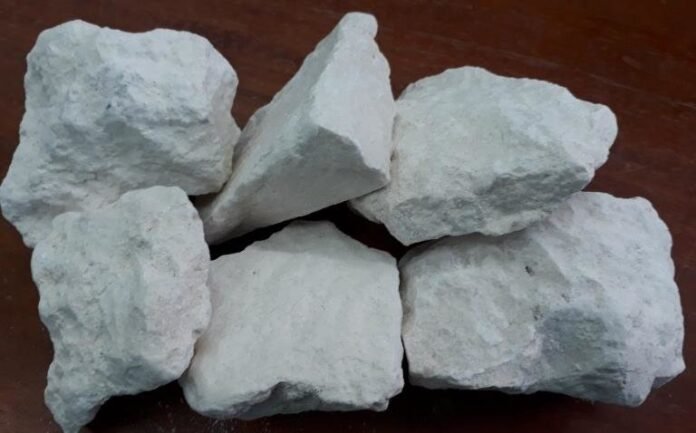Calcium carbonate is a common substance found in rocks, and it is the main component of shells of marine organisms, snails, and eggs. In agriculture, it is a crucial compound used to improve soil health and enhance crop production. The benefits of using calcium carbonate powder in farming are numerous, making it a popular choice among farmers.
Benefits to Soil Health
One of the primary advantages of using calcium carbonate in agriculture is its ability to neutralize acidic soils. Acidic soils can hinder plant growth and reduce crop yields. When calcium carbonate powder is added to the soil, it reacts with the acids and raises the pH level, creating a more neutral environment for plants. This process, known as liming, helps to improve the availability of essential nutrients in the soil.
Another benefit is the improvement of soil structure. Calcium carbonate helps to bind soil particles together, increasing soil stability and reducing erosion. This is especially important in regions with heavy rainfall, where soil erosion can be a significant problem. By improving soil structure, calcium carbonate also enhances water retention, ensuring that crops have access to sufficient moisture.
Enhancing Crop Production
The use of calcium carbonate in agriculture is not just limited to improving soil health; it also directly impacts crop production. By creating a more favorable soil environment, plants can absorb nutrients more efficiently, leading to healthier and more robust growth. This is particularly beneficial for crops that are sensitive to soil acidity, such as legumes, which require a higher pH level to thrive.
Activated calcium carbonate, a more refined form of calcium carbonate, offers additional benefits. It has a higher surface area and reactivity, making it more effective in improving soil quality and promoting plant growth. When applied to crops, activated calcium carbonate can help to increase photosynthesis, enhance nutrient uptake, and improve overall plant health.
Application Methods
Farmers have several methods to apply calcium carbonate to their fields. One common method is broadcasting, where the powder is spread evenly over the soil surface using a spreader. This method is suitable for large fields and ensures that the calcium carbonate is evenly distributed. Another method is incorporating the powder into the soil through tillage, which helps to mix the calcium carbonate into the soil more thoroughly.
For more targeted application, farmers can use a technique called banding. This involves applying the calcium carbonate powder directly to the planting rows, where the crops’ roots will have immediate access to the benefits. This method is particularly useful for crops that are planted in rows, such as corn and soybeans.
Environmental Impact
Using calcium carbonate in agriculture also has positive environmental impacts. By improving soil structure and reducing erosion, it helps to prevent the loss of topsoil, which is crucial for maintaining soil fertility. Additionally, by neutralizing acidic soils, calcium carbonate can reduce the leaching of harmful elements such as aluminum and manganese, which can be toxic to plants and aquatic life.
Furthermore, the use of calcium carbonate can help to reduce the reliance on chemical fertilizers. By enhancing the soil’s natural fertility, farmers can achieve better crop yields with fewer synthetic inputs, promoting more sustainable farming practices.
Conclusion
Calcium carbonate is an essential tool in modern agriculture, offering numerous benefits for soil health and crop production. By neutralizing acidic soils, improving soil structure, and enhancing nutrient availability, calcium carbonate powder plays a vital role in ensuring healthy and productive crops. Activated calcium carbonate, with its higher reactivity, provides even greater advantages, making it a valuable resource for farmers. As agriculture continues to evolve, the use of calcium carbonate will remain a key component in sustainable farming practices.



